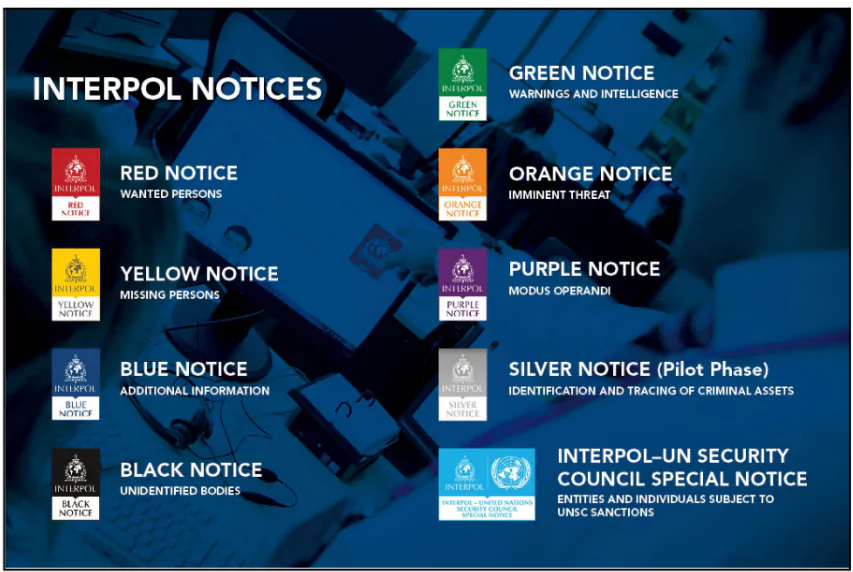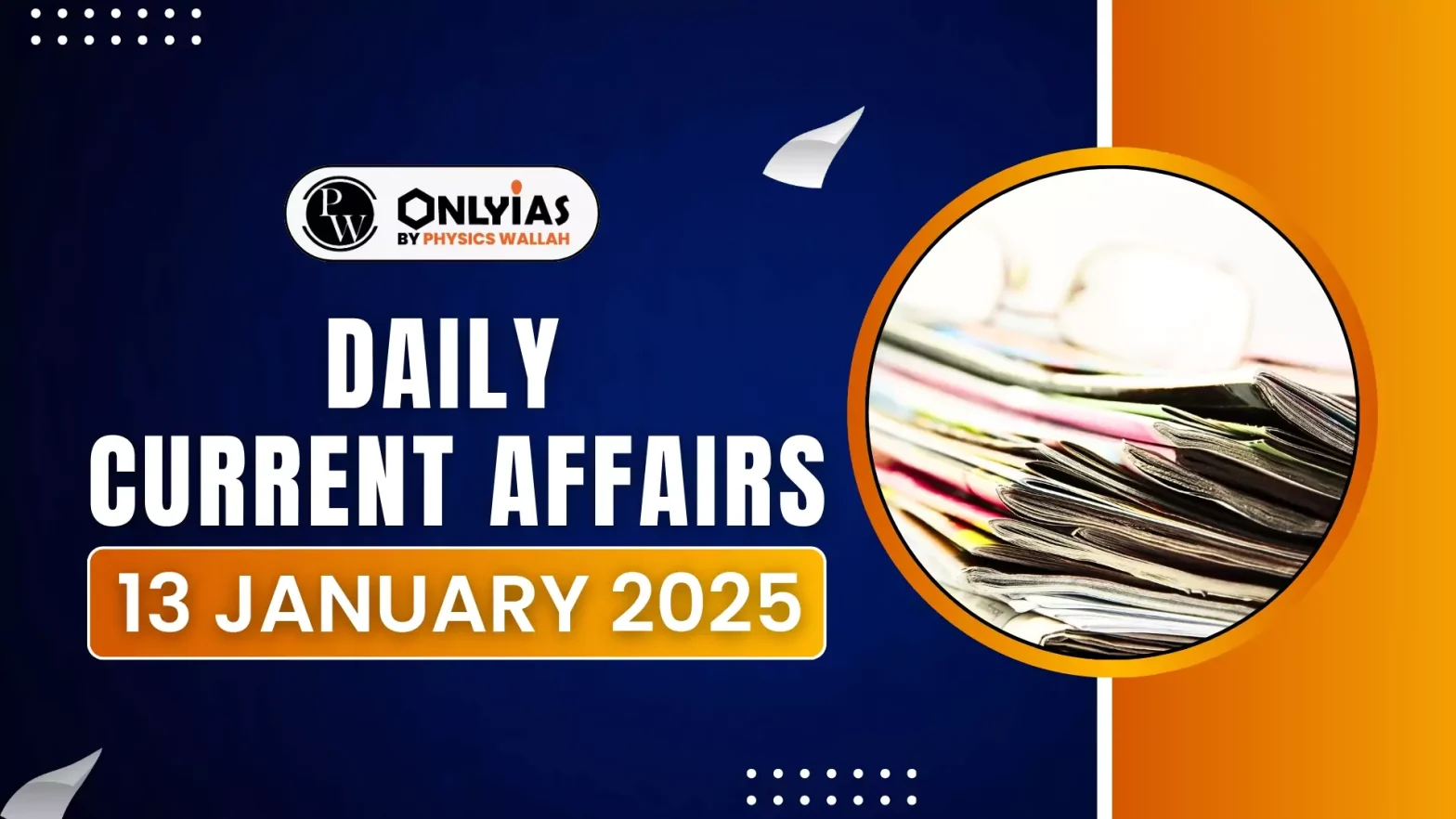The International Criminal Police Organisation (Interpol) has launched its first Silver Notice, a pilot initiative to trace and recover assets laundered across international borders.
About the First Silver Notice
- The Notice, requested by Italy, seeks information on the assets belonging to a senior member of the mafia.
Enroll now for UPSC Online Course
About Silver Notice
- New Addition to Alert System: The Silver Notice is the latest addition to Interpol’s colour-coded alert system, aimed at enhancing global cooperation in combating financial crimes.
- Purpose: The notice assists member countries in identifying, locating, and recovering criminally obtained assets. These assets may include:
- Properties
- Vehicles
- Financial accounts
- Businesses
- Scope of Criminal Activities: Silver Notices are particularly useful in cases linked to:
- Fraud
- Corruption
- Drug Trafficking
- Environmental Crimes
- Pilot Phase: The pilot program for the Silver Notice will run until November 2025, during which its effectiveness and operational feasibility will be evaluated.
- The pilot project involves 52 countries, including India.
How Does It Work?
- Requesting Information: Member countries can request details about assets suspected to be linked to criminal activities.
- These requests facilitate the tracing of cross-border transactions and properties associated with crimes.
- Identification and Action: The Silver Notice helps locate such assets, enabling member countries to take legal actions like:
- Actions are taken in compliance with each country’s national laws.
- General Secretariat Review: Before issuance, the Interpol General Secretariat thoroughly reviews each notice to ensure it:
- Complies with Interpol’s organisational rules.
- Prevents misuse for political or unlawful purposes.
Significance of Silver Notice
- Global Financial Crime Control: The Silver Notice strengthens international efforts to combat money laundering and other financial crimes.
- Enhanced Bilateral Cooperation: Under Silver Notice, Countries may subsequently use information received by issuing the notice as a basis for bilateral engagement, including bilateral requests for seizure, confiscation or recovery of assets, subject to national laws
- Enhanced Cooperation: By involving 52 countries, the initiative fosters stronger cooperation among member nations in recovering criminal assets.
About International Criminal Police Organization (INTERPOL)
- Purpose: Facilitates international police cooperation to combat cross-border crimes like terrorism, trafficking, and organized crime.
- Establishment Year: 1923.
- Member: 196 member countries.
- India’s Membership: India has been a member since 1956.
- Status: Independent international organization, not part of the United Nations system.
- Headquarters: Located in Lyon, France.
- Official Languages: Arabic, English, French, and Spanish.
- Role in Investigations: Acts as the first point of contact for international investigations but does not actively investigate crimes.
- Communication System: Member countries are connected through Interpol’s communication system, I-24/7, facilitating real-time contact and access to Interpol’s databases.
- Databases: Interpol manages 19 databases containing information on crimes and criminals, accessible to member countries.
Check Out UPSC CSE Books From PW Store
Types of Notices

- 9 types of notices ( 8 of which are colour-coded): In the form of alerts/requests allowing police in member countries to share critical crime-related information.
- These notices are issued by the Interpol’s General Secretariat at the request of a member country’s Interpol National Central Bureau, and are made available for all member countries
Organizational Structure Of INTERPOL
- General Assembly:
- Supreme decision-making body with one delegate from each member country.
- Decisions are taken during annual meetings.
- General Secretariat:
- Operates under a Secretary General, who manages day-to-day operations.
- Secretary General’s Term: Five years, appointed by the General Assembly.
- Executive Committee:
- It has 13 members, each representing a different region.
- Oversees the implementation of General Assembly decisions and supervises the work of the Secretary General.
- National Central Bureau (NCB):
- Each member country has an NCB, acting as the central point of contact with INTERPOL and other NCBs globally.
- NCBs are managed by police officials and are typically housed in the government ministry responsible for policing (in India’s case, the Union Home Ministry).
- In India, the Central Bureau of Investigation (CBI) serves as the NCB.
![]() 13 Jan 2025
13 Jan 2025

